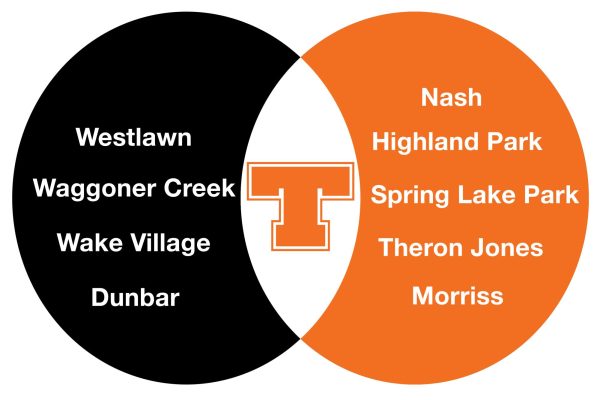When the schoolhouse doesn’t rock
Benefits of dropping classes
photo illustration
May 13, 2021
Seven hours. Five classes. With nothing but a lunch period to break up the monotony. After those seven hours are over, school begins at home. There are tests to study for, essays to write and energy drinks to down as you begin to grasp that equation you’ve been staring at for half an hour. Eventually, you’ll go to sleep that night, only to repeat that same schedule five more times that week.
After that comes the weekend, with its empty promises of brain breaks and recharging the body. However, Saturdays and Sundays slowly morph into catch up days as coursework grows in intensity.
Some have the energy and intelligence to never feel broken down by academia. Some people can power through this tedious at best and exhausting at worst weekly schedule. And some people need to give up.
Giving up doesn’t necessarily mean dropping out of school; that’s an extremity that is only the right decision in a handful of cases. Giving up usually means during late-night cuddle sessions next to a textbook and a can of Redbull, looking at your caffeine stained notes and thinking, “I’m dropping this class.”
Although it’s not the most encouraging answer, simply deciding to no longer deal with a class can alleviate more stress than many want to tell you.
If it’s just one class that’s resulting in sleepless nights and low grades for high amounts of effort, switching up your schedule could save your gpa and mental stability. Sometimes, now matter how hard you may try, your grades will never express the mental and emotional turmoil you’ve put into a test.
We want to buy into this sort of students’ American dream and think, “If I work hard, manage my time and see things through, a life of admiration and wealth will come running to me.” However, as every junior knows from The Great Gatsby, this Academic dream cannot always be achieved.
Some people just have a bad memory and cannot recite the words to a new history chapter every other night. Others cannot wrap their heads around the meaningless metaphors of classic English literature. Knowing your academic weaknesses does not make you weak; it means you can find what talents are actually worth developing and taking those classes at the appropriate level.
Let’s say you’ve finally decided the life of writing x’s and y’s or punnett squares is not for you. Switching to a class of the same subject but a “less advanced” version does not mean your class time will be wasted. It’s typically a slower paced, less condensed version of the material you were already trying to learn. This extra time may even allow you to study and strengthen your grades in other classes.
You may be concerned with what classmates will think of you leaving your previous, challenging class for one that gives you a brain break. Rest assured, no one really cares. This is a big school; if kids had the time to notice who got a schedule change and then had more time to judge them for it, they would never finish their assignments.
Simply letting go of difficult classes is not the most pleasant answer to students’ problems, but if stress levels decline as grades plummet, it may be the only logical solution. Some days, allowing for an “easy” class or two in a student’s schedule is the only way to preserve both one’s mental health and potentially tear-soaked textbooks.





















